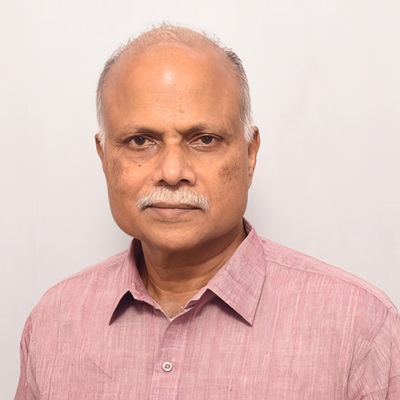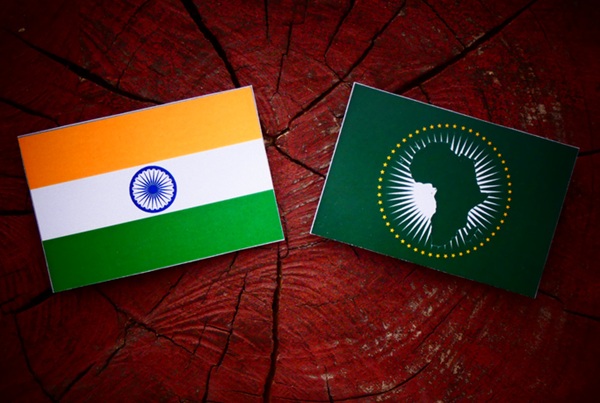.png)

T.K. Arun, ex-Economic Times editor, is a columnist known for incisive analysis of economic and policy matters.
July 15, 2025 at 2:18 AM IST
When Prime Minister Narendra Modi visited Namibia recently, on his way back from the G20 summit in Brazil, he was received warmly, and awarded the country’s highest civilian honour. Namibia was celebrating not so much Modi as India, the country that had steadfastly supported the South-West Africa People’s Organisation as it fought for freedom from Apartheid South Africa, and allowed the liberation army to open its representative office in New Delhi in 1986, four years before South-West Africa got freedom and became Namibia.
Modi drew on the ministry of external affairs’ institutional memory, spoke of Swapo leader Sam Nujoma and India’s desire to partner Africa as it treads the path towards development. He, however, did not broach a subject that would have been of keen interest to Namibia and a host of other nations in Southern and Eastern Africa—filling the gap, in fact, deep gash, created by President Trump’s decision to defund the foreign aid agency USAID, in general and, in particular, PEPFAR, the President’s Emergency Plan For AIDS Relief, started by President Bush in 2003, PEPFAR has been quite successful in containing the AIDS epidemic in the region, by distributing anti-retroviral drugs and prophylactic means and advice in 15 countries of the region.
UNAIDS is the UN’s umbrella framework coordinating the work of different arms working on AIDS that in the early 2000s had threatened to devastate the population and economies of several African nations, the leaders of many of which chose to see divine retribution in the disease rather than a disease to be combated. Then, in 2003, India’s Cipla had made and sold cheap generic versions of the expensive treatment then available for AIDS from multinational drug companies. Cipla managed to do this shortly before India’s switch from its long-lived process patent regime to WTO-compatible product patent regime. Threatened and shamed by Cipla’s move, multinational drug companies lowered their own prices, western governments chipped in with funds, and AIDS was beaten back.
According to UNAIDS, PEPFAR contributed $301.6 million for HIV prevention across 15 countries of the region. India should undertake to make good the deficit created by America’s abdication of its traditional global leadership. If Atlas wants to shrug, that should be his problem, not the world’s. If India steps into the breach to ensure this, the world would cheer, and not just the 15 countries directly affected, including Namibia.
Can India afford to do this? $300 million is well within India’s aid budget, but all the money need not come from the exchequer. The government of India should be able to find extra-budgetary resources for the scheme. Multiple Indian companies now nurse Africa as a vital, growing export market, for everything ranging from bicycles, motor cycles and SUVs to hair products. Such companies should be happy to sponsor a chunk of the programme, in return for the visibility of their brands in their target markets and in the consciousness of their governments.
Africa is pretty passionate about football. With the help of some prominent African players turning out for major European teams, it should be possible to organise some matches figuring some of the biggest stars of the game, for the benefit of UNAIDS.
Bob Geldorf, Bono, Freddie Mercury, Elton John, Paul McCartney, Sting, Mick Jagger, Madonna and others performed for Live Aid, 40 years ago. Why not a repeat of that to combat AIDS, say in Dubai, where there is a huge fan base for the singing and dancing stars of Hindi, Malayalam, and Tamil cinema? Artistes would draw inspiration not just from the worth of the cause they champion but also from the pleasure of delivering a slap in the face of the one enabling the ethnic cleansing underway in Gaza. Someone just needs to make things come together.
Why should India do this? That the bulk of the anti-retroviral drugs procured for PEPFAR is from Indian pharma companies is incidental. India wants to be a leader of the Global South. At a time when most rich countries are under pressure to step up their defence outlays and cut back on welfare, to expect them to make good the deficit left behind by Trumpian politics would be ridiculous. The task falls to countries like India and China.
China has been wooing Africa systematically for quite some time. Starting in 2000, China has held eight Africa summits, at regular three-year intervals. It is a financier, builder of operator at 72 of Africa’s 231 ports. African students study in China in large numbers, although their experience in the Middle Kingdom’s 21st century iteration has been tinged with racist discrimination. Racism is something that comes naturally to Indians, as well, as people from India’s own Northeast can well testify in a city like New Delhi.
When China announces a project in a foreign country, execution soon follows, and the piece of infrastructure that gets built is ready for use in a visible, tangible fashion. Indian external aid projects meander leisurely through different files of different ministries and financial institutions, before they start taking shape in the intended beneficiary country, and then, too, often appear like Alice’s Cheshire cat, only in part, to testify to inefficiency in project execution.
China probably would find the political will and the funds to demonstrate its commitment to global well-being, funding the World Health Organisation, after US withdrawal from the body, and UNAIDS besides. If India wants to leave the field uncontested to China in the game of expanding soft power, a leader visiting Africa can recall the good old times of anti-colonial solidarity between India and Africa, and leave it at that. Or, India can step up to the plate, and fund the AIDS programmes in Africa that have been abandoned by the US.




